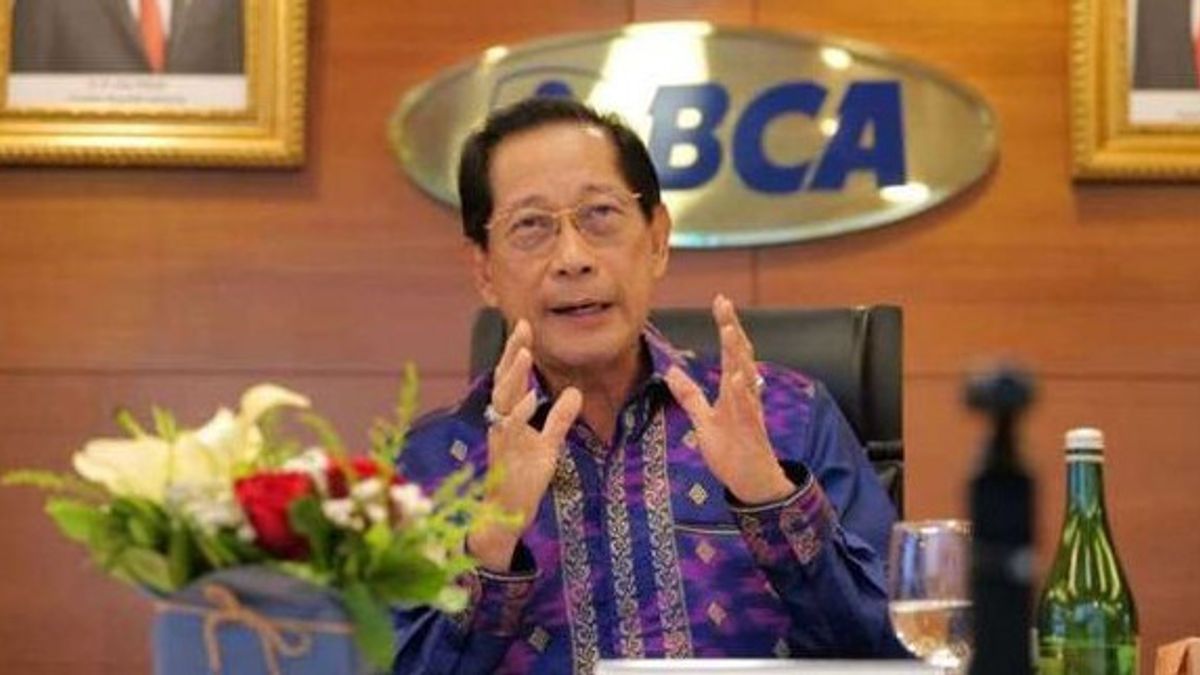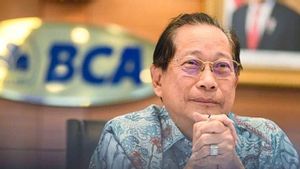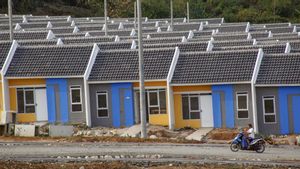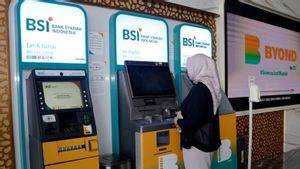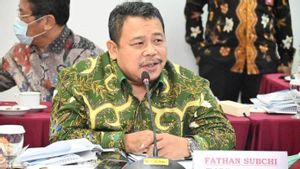JAKARTA - President Director of PT Bank Central Asia Tbk (BCA) Jahja Setiaatmadja said that people's purchasing power must be increased and maintained because it can affect economic performance to achieve growth by 8 percent.
"About the economy growing by 8 percent, we have to see because economic growth is certainly a lot of factors there. What we have to look at is of course also in terms of people's buying power, from the programs later on the State Budget," said Jahja as quoted by ANTARA, Wednesday, October 23.
He said, many factors affect the running of the economy and spur economic growth of up to 8 percent, including the performance of the State Revenue and Expenditure Budget (APBN).
"Because they believe that the APBN programs, if they do work, will greatly encourage our economy in the future," he said.
With an economic team that maintains people who have shown performance in encouraging economic growth in difficult times due to the pandemic, he believes that in the future the performance of the APBN will be better.
"But this has not yet entered that era. Next year, maybe we will start to see how the State Budget is for 2025, how it will implement it, how its effectiveness holds back inflation and try to encourage growth from there," he said.
In addition, according to Jahja, with more ministers in the current government cabinet, the focus will be sharper on certain areas, so it is hoped that the policies and performances generated in the future will also improve Indonesia's economic growth.
"But I believe the basics are good, our economic team is already good, and also with enough ministers, it means that the focus of each of them is sharper on their respective fields. So we just have to wait for the policy, what kind of performance, we hope that of course it will be better later," said Jahja.
The President and Vice President of the Republic of Indonesia Prabowo Subianto-Gibran Rakabuming Raka in the Vision and Mission of Asta Citanya has a desire to realize Indonesia as a self-sufficiency country in the food sector, as well as energy.
In addition, President Prabowo also targets Indonesia to become an industrialist country, so that the economic growth target above 8 percent can be realized.
SEE ALSO:
Previously, the Central Statistics Agency (BPS) advised the government to make policies that strengthen the purchasing power of the middle class, given its high contribution to the economy.
"Strengthening purchasing power is needed not only for the poor, but also for the middle class and towards the middle class," said Acting (Plt) Head of BPS Amalia Adininggar Widyasanti during a press conference, in Jakarta, Friday, August 30.
Based on data compiled by BPS, the number of middle and middle class is 66.35 percent of the total population of Indonesia, with a proportion of expenditure consumption reaching 81.49 percent of the total public consumption.
However, the middle class portion began to decline since the COVID-19 pandemic in 2019, from 57.33 million (21.45 percent) in 2019 to 47.85 million (17.13 percent) in 2024.
The English, Chinese, Japanese, Arabic, and French versions are automatically generated by the AI. So there may still be inaccuracies in translating, please always see Indonesian as our main language. (system supported by DigitalSiber.id)
